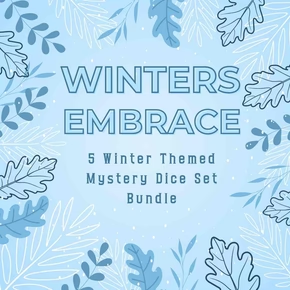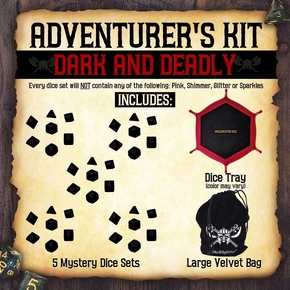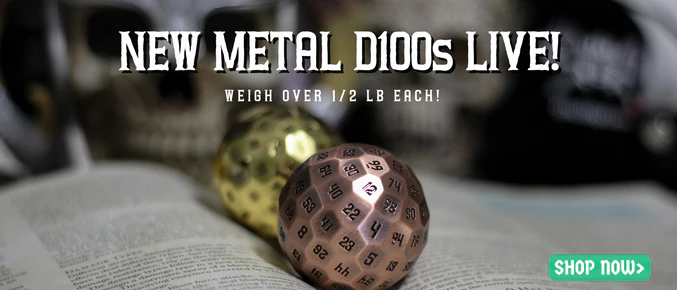
D&D Adventurer’s League
Table of Contents:
Endless D&D Wherever You Are
D&D is booming right now, no doubt about it. I’d have called you insane if you told me 20 years ago that the cool kids would be all about tabletop roleplaying. But strangely enough this decidedly nerdy game requires something that often eludes the best of us, a group of friends and a free day on everyone’s schedule. Adventurer’s League is here for the many of us who want to game, but just can’t get a game together. But how does it work? Grab your character sheets and follow me to your local game store as we go through everything you need to know.
So, What’s Adventurer’s League?
The goal of the adventurer’s league is simply to provide a D&D experience to anybody who wants one. Most gaming stores will have a weekly adventurer’s league night, and everybody is welcome to join up. People can show up to play, or they can sign on to be DMs. Rather than just playing your own campaigns though, you play adventures from the official adventure paths and campaign books. Many stores host these games for free (got to make those sweet dice and concession sales), but some will charge something small like a $5 fee to help cover supplies and the organizer’s time.
Want to grow your hoard? Check out our dice subscriptions!
How is it Different from Regular D&D?
Largely playing in an adventurer’s league is just like playing any other D&D game, but it does have a few major alterations. Adventurer’s league wants to allow players to jump in and jump out of games on the fly. Nothing is disrupted if the druid can’t make it this week, another player simply takes the spot. This is both an advantage and a disadvantage, since players can be extremely flexible with their schedules, but you also can’t form meaningful plotlines and stories with random players that change out each week.
The other big difference is one of emphasis. D&D is a primarily roleplaying game, whereas adventurer’s league is a GAME, in which you can occasionally do some roleplaying. Adventurer’s league is all about gaining experience points, finding gold, and grabbing the best magic items. All of this can be great fun, but just know that it is going to be the focus of your games.
That aspect of feeling more like a “game” feeds into a more competitive atmosphere as well. In your typical D&D game, most DMs will advance their players at the same time, or at least give them the same opportunities to gain levels if they’re using EXP over milestones. In adventurer’s league, a surviving high tier character is something of an accomplishment, those magic items and levels weren’t granted by a benevolent DM, they were EARNED through multiple sessions of deadly combat. In a lot of ways, it feels more like you’re playing an MMORPG. You and multiple other groups will head through the same adventures, earn the same loot, fight the same bosses. But because this is actually a roleplaying game, sometimes a player can find previously undiscovered clever solutions.
Finally, the last major difference is the hard limits they place on character creation. You will be sorely disappointed if you wanted to roll up a goblin artificer, and absolutely forget about anything homebrew or third-party. This ties back into that feeling of competitiveness, and with competition comes the need for a level playing field. Adventurer’s league has some very severe limitations for your character (which we’ll go over in detail later).
Should You Play in the Adventurer’s League?
I personally don’t recommend playing adventurer’s league over a home game, but that doesn’t mean you shouldn’t consider it. I like to think of adventurer’s league as the speed dating version of D&D. There’s no commitment, nothing bad happens if it doesn’t work out, it’s always an option, even if it’s not as great as a real date.
Adventurer’s league just simply isn’t as fun as regular old D&D, but it’s available to everybody who can’t get that regular game together. It’s a great taste of how D&D works, and it’s the best option if you don’t have any friends interested in the hobby.
How do I Join an Adventurer’s League?
Adventurer’s league is run using a DCI number in a very similar way to Wizards of the Coast’s other gaming events, or rather a lot like a Magic the Gathering tournament. You simply find a local comic shop and find out what days they play on. You can find their website here, which has all the official adventurer’s league events mapped out.
If you’re brand spanking new to D&D, it’s fine to just show up and ask for an introduction. Most event coordinators are great for helping new players create their characters and will usually have fresh character sheets and dice ready for newbies.
If you’ve been playing D&D a while and want to try the league out, I recommend putting together your new AL character ahead of time. You’ll have to limit yourself with a few constraints though…
Making a Character Adventurer’s League Legal
Adventurer’s league tries to be a competitive gaming experience, and that requires a level playing field. The league tries very hard to ensure that nobody gets an unfair advantage, and there aren’t any game-breaking builds running around to spoil the competition. So, you have a few very important factors to consider when making your new character legal for Adventurer’s League play.
Level 1 Baby
Everybody starts out at 1st level. This environment is all about earning those levels, and so every character must start out at the bottom.
Point Buy or Standard Array
No rolling for stats, ever. This makes a lot of sense, as it’s impossible to verify that the guy who just showed up rolled straight 18’s for all his stats at home, no really, he swears! Take a look at the character creation section of the player’s handbook where it talks about generating ability scores. Both point buy and standard array are acceptable.
PHB +1
This rule confused me for the absolute longest time, and for quite a while I thought the character creation limits were way worse than they are. When you boil this rule down, they’re just trying to stop you from plucking bits from a million different sources to create your character. PHB +1 means the player’s handbook, then one other source of your choice: player’s handbook plus one. You get to use all the player creation options present in the player’s handbook, and all the player creation options in one other book from the following list of approved sources:
- Elemental Evil Player’s Companion (EEPC)
- Sword Coast Adventurer’s Guide (SCAG)
- Volo’s Guide to Monsters (VGM)
- Xanathar’s Guide to Everything (XGE)
- Mordenkainen’s Tome of Foes (ToF)
Note here, you can ONLY use your chosen book and the player’s handbook for your character, and that includes things like feats and spells. Be incredibly careful with what book you pick, as some specialty builds definitely require access to more than one.
Variant Rules
One of the base rules for adventurer’s league is that variant rules aren’t allowed. But this rule has several exceptions that you can use anyway:
- Variant Human Traits (PHB)
- Half-Elf and Tiefling Variants (SCAG/ToF)
- Option: Human Languages (SCAG)
- Blessing of Corellon (ToF)
Feats
This one puzzled me forever, but you can use feats no problem. Feats have always technically been optional variant rules, but in a very backwards way the adventurer’s league allows them. I had to dig through the rules and confirm it from multiple sources, but feats are totally allowed. So, no worries, select feats to your heart’s content.
Banned Options
Even building with these restrictions, there are some options that are directly banned. Mainly these are the options that give players the power to fly early, which they seem to be very touchy about. Also, while the dungeon master’s guide has a few player options in it, that book isn’t on the approved list and you’re not allowed to use the features there so the following options aren’t allowed:
- Aarakocra. No flying sadly means no eagle people.
- Variant Tiefling: Winged Tiefling. Demon wings are in the same boat, AL says no free flight.
- Eladrin (Variant). Note, this is the one from the dungeon master’s guide. The eladrin from Mordenkainen’s Tome of Foes is fair game assuming you picked that book as your +1. Most places will refer to this version as the “variant” eladrin.
- Aasimar (Variant). Again, this is the version from the dungeon master’s guide, and you’re free to use the version of aasimar that came out of volo’s guide to monsters. This isn’t too much of a problem, since the later version in volo’s is objectively better anyway. Just make sure you’re not using the variant version when you’re looking up the stats.
- Death Cleric. I really wish they’d allow this one but it’s banned similarly because it came out of the dungeon master’s guide. So you can’t get all spooky and use the death domain as a cleric, even if it’s in your god’s list of domains. Come on AL, let us play necromancers!
Oathbreaker Paladin. Finally, the oathbreaker archetype for paladins is not allowed, again because it was introduced in the dungeon master’s guide.
--
Enjoy this Guide? You May Also Like:
How to Find a Dungeons and Dragons Tabletop Gaming Group aka How to Find a DND Group
Need a New Dice Set? Check out our DND Dice here.They are perfect for every gamer as a gift or just treating yourself!
Thinking about other classes? Check out our giant list of D&D 5e Tools and Tips here.
New to find a D&D Group? Check out our guide on How to Find a D&D Group.
Want to learn more about the gods in D&D? Check out our Deities 5e Guide
Disclaimer
Last updated: January 27, 2019
The information contained on www.SkullSplitterDice.com website (the "Service") is for general information purposes only.
Blueshift Nine, LLC assumes no responsibility for errors or omissions in the contents on the Service.
In no event shall Blueshift Nine, LLC be liable for any special, direct, indirect, consequential, or incidental damages or any damages whatsoever, whether in an action of contract, negligence or other tort, arising out of or in connection with the use of the Service or the contents of the Service. Blueshift Nine, LLC reserves the right to make additions, deletions, or modification to the contents on the Service at any time without prior notice.
Blueshift Nine, LLC does not warrant that the Service is free of viruses or other harmful components.
Affiliate disclaimer
This affiliate disclosure details the affiliate relationships of Blueshift Nine, LLC with other companies and products.
Some of the links are "affiliate links", a link with a special tracking code. This means if you click on an affiliate link and purchase the item, we will receive an affiliate commission.
The price of the item is the same whether it is an affiliate link or not. Regardless, we only recommend products or services we believe will add value to our readers.
By using the affiliate links, you are helping support the Service, and we genuinely appreciate your support.
Affiliate advertising programs that the Service uses are:
- Amazon Services LLC Associates Program
- As an Amazon Associate, I earn from qualifying purchases.
- Blueshift Nine, LLC is a participant in the Amazon Services LLC Associates Program, an affiliate advertising program designed to provide a means for sites to earn advertising fees by advertising and linking to Amazon.com or endless.com, MYHABIT.com, SmallParts.com, or AmazonWireless.com.
- Pages on this Service may include affiliate links to Amazon and its affiliate sites on which the owner of this Service, Blueshift Nine, LLC, will make a referral commission.

Disclaimer
Last updated: January 27, 2019
The information contained on www.SkullSplitterDice.com website (the "Service") is for general information purposes only.
www.SkullSplitterDice.com is a participant in the Amazon Services LLC Associates Program, an affiliate advertising program designed to provide a means for sites to earn advertising fees by advertising and linking to Amazon.com. (source: Section 5)
Blueshift Nine, LLC assumes no responsibility for errors or omissions in the contents on the Service.
In no event shall Blueshift Nine, LLC be liable for any special, direct, indirect, consequential, or incidental damages or any damages whatsoever, whether in an action of contract, negligence or other tort, arising out of or in connection with the use of the Service or the contents of the Service. Blueshift Nine, LLC reserves the right to make additions, deletions, or modification to the contents on the Service at any time without prior notice.
Blueshift Nine, LLC does not warrant that the Service is free of viruses or other harmful components.
Affiliate disclaimer
This affiliate disclosure details the affiliate relationships of Blueshift Nine, LLC with other companies and products.
Some of the links are "affiliate links", a link with a special tracking code. This means if you click on an affiliate link and purchase the item, we will receive an affiliate commission.
The price of the item is the same whether it is an affiliate link or not. Regardless, we only recommend products or services we believe will add value to our readers.
By using the affiliate links, you are helping support the Service, and we genuinely appreciate your support.
Affiliate advertising programs that the Service uses are:
- Amazon Services LLC Associates Program
- As an Amazon Associate, I earn from qualifying purchases.
- Blueshift Nine, LLC is a participant in the Amazon Services LLC Associates Program, an affiliate advertising program designed to provide a means for sites to earn advertising fees by advertising and linking to Amazon.com or endless.com, MYHABIT.com, SmallParts.com, or AmazonWireless.com.
- Pages on this Service may include affiliate links to Amazon and its affiliate sites on which the owner of this Service, Blueshift Nine, LLC, will make a referral commission.




